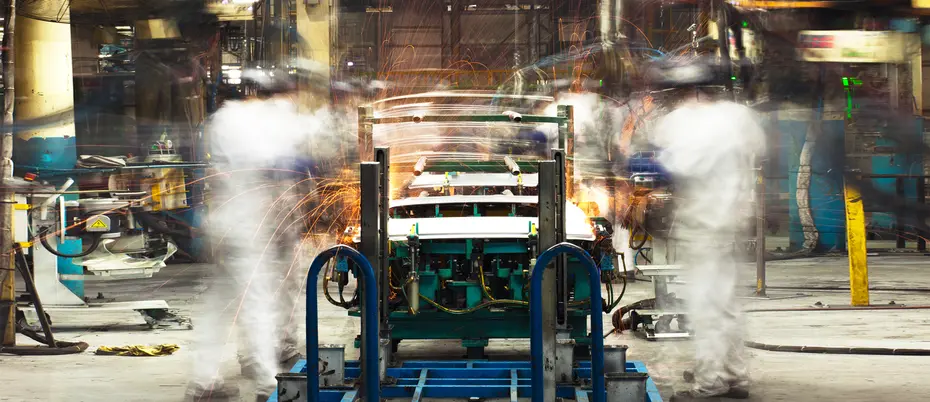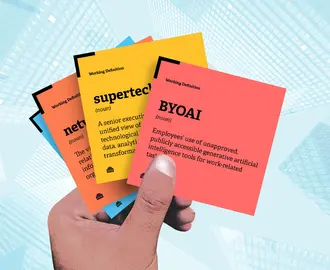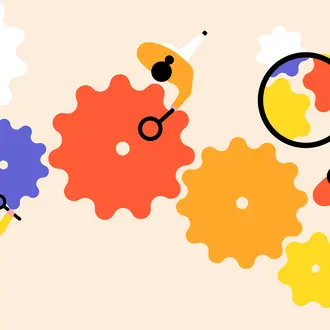Change Management
Setting the record straight on lean
Lean, the production system pioneered at Toyota, has fallen victim to a galaxy of misconceptions, say two of its expert minds. But when done right, it can generate wins for managers and companies.
Ask what the term “lean management” means, and you might see the blood drain from someone’s face. “Lay-offs, cost-cutting, downsizing,” they might spit back at you.
But that’s not what the system — modeled after the lean manufacturing practices pioneered in the 1970s by Toyota — is about, according to lean experts John Shook, chairman and CEO of the Lean Enterprise Institute, and Jamie Bonini, vice president of the Toyota Production System Support Center. They recently joined MIT Sloan adjunct associate professor Zeynep Ton’s class to elaborate.
“[Lean management] relates to how we think about the way we do our work, and how we think about it both enterprise-wide and for each individual human that’s involved in that entire system,” said Shook, the first American employee Toyota hired in the 1970s to help spread the Toyota Production System [TPS] around the world.
He said the term “lean,” as the TPS approach is known today, came out of research into how the system could be spread outside the company, and to shake the common misconception that it only worked for Japanese companies. The Toyota Production System and lean aim to reduce all forms of waste in a process to maximize profit and customer value.
And lean practices are not just for manufacturing.
“It can apply to administrative areas, to office work, software development, all that stuff,” Bonini said.
“At the highest level, I think the biggest misunderstanding is that people only think about the technical side of the system,” Shook added. “It’s a fully holistic, social, and technical system. That means embracing everyone, every human being that’s in it, from the board, the CEO, the owner, all the way down to the bottom.”
Context matters
Bonini said lean management must also be implemented in the unique context of the organization that’s trying to adopt it, not as a one-size-fits-all approach, and most of the learning comes through the process of implementing lean.
“TPS is a little intricate in the way that we know when we work with organizations that it won’t make any sense … until there’s been some experiential learning," Bonini said. "For them to experience it in their context and for us to work with them side-by-side."
Shook said one of the biggest problems associated with the system is firms trying to directly copy the solutions that others have arrived at implementing lean/Toyota Production System, and pasting them into their own operations — which could be very different.
“You expect that that’s going to work the way that it did in a different context. Context is hugely important,” Shook said. “If you start copying a solution, I think you’re going to struggle.”
Develop managers, not organizations
Shook and Bonini also focus on developing managers, who can spread out and scale the system to their own departments very quickly, rather than trying to overhaul an entire organization at once, as many attempt to do. That reduces the overall time it takes to implement lean throughout a firm.
“If you can develop the manager, the leader, to get the basics of TPS very well, those people can scale a company," Bonini said. "Now you don’t have a problem of [training] 75,000 people in a company. You have a problem of training 30 or 40 managers, and that’s a solvable problem.”
Often Shook, Bonini and their team will work with an organization to identify a crucial part of the business to use as a model for implementing lean. They'll bring that area up to speed first, then use the experience to scale the system up to the rest of the firm, Bonini said.
Embrace lean as a way of thinking
Shook said lean/TPS is more accurately categorized as a way of thinking, rather than just a technical system for operating an organization.
“It will go with you as far as you want to go,” he said. “It will go as deep as you want. If you want to cut it off at some fairly mechanical level of making some operational improvements, fine. That’s what it will be for you. If you want to see it as a holistic, all-encompassing culture and philosophy and way of working, it will be that and there’s no end to the learning that it will take you to.”




